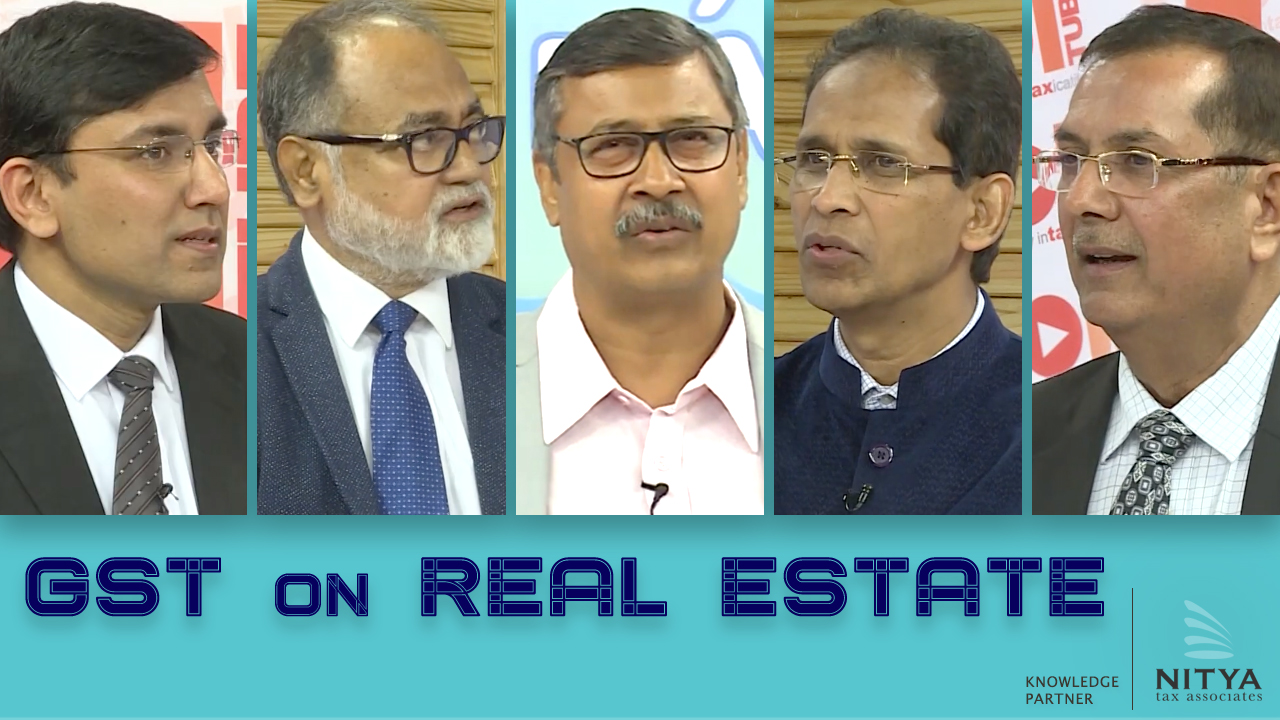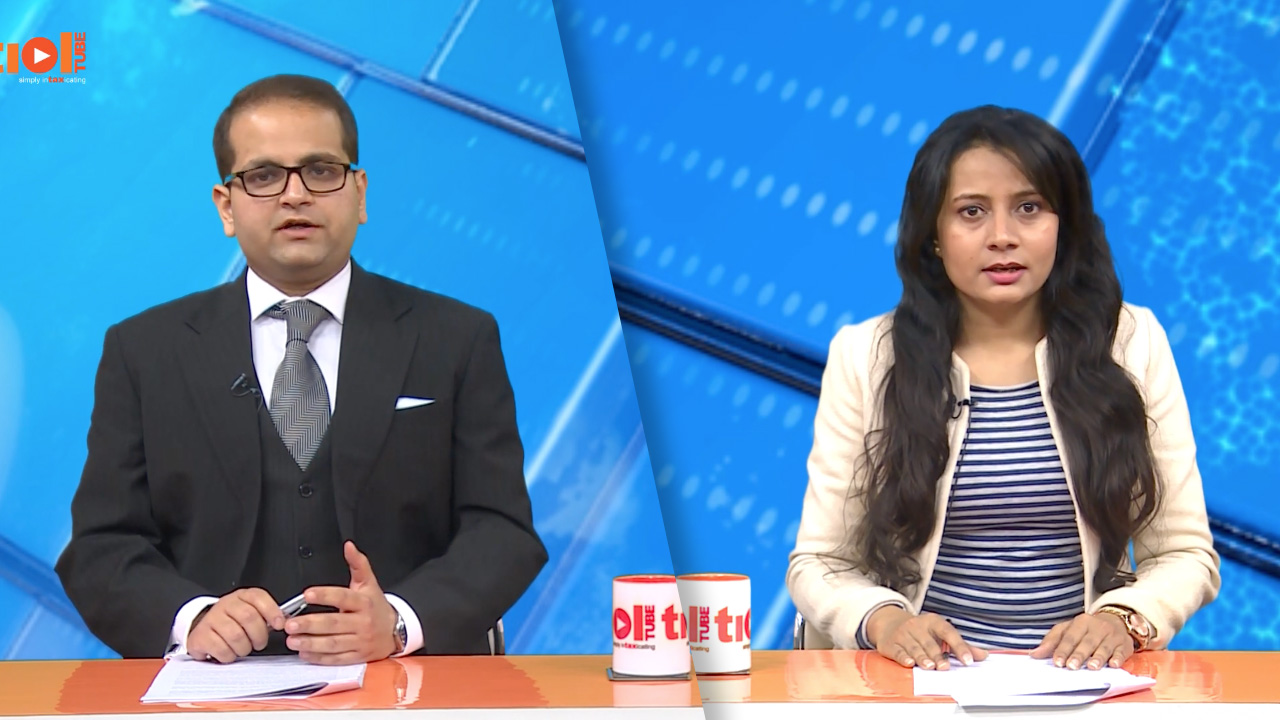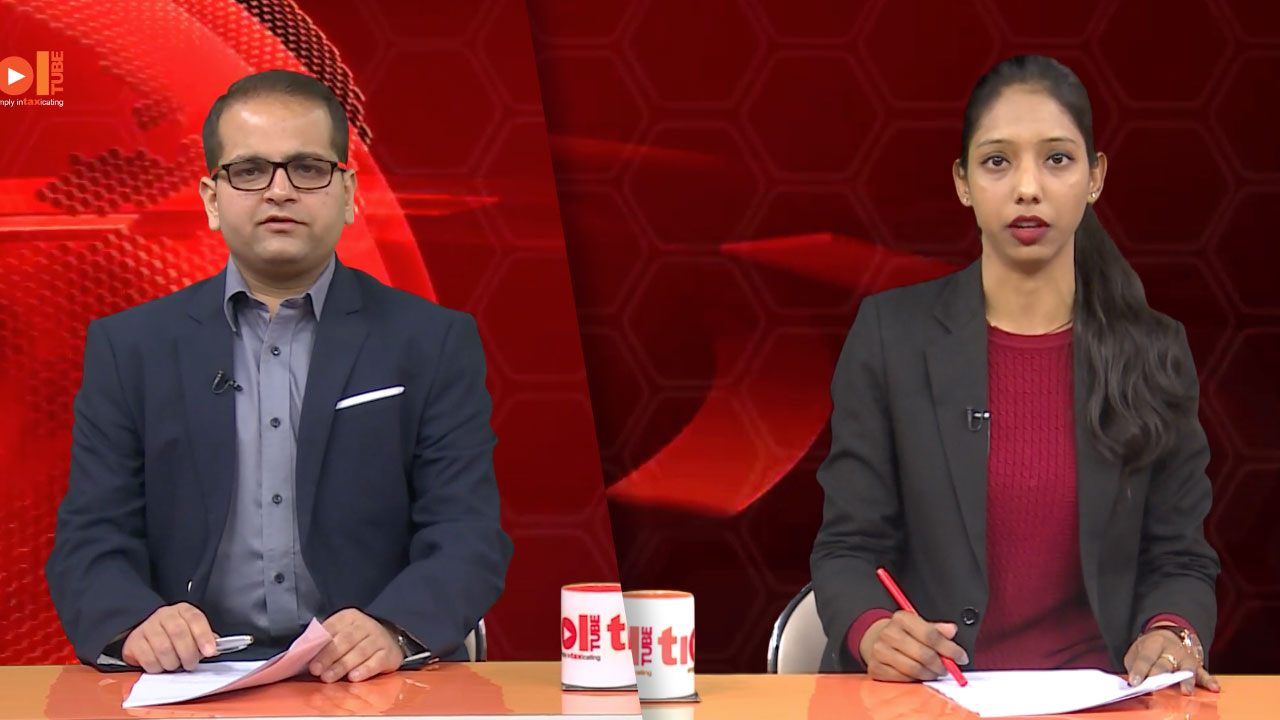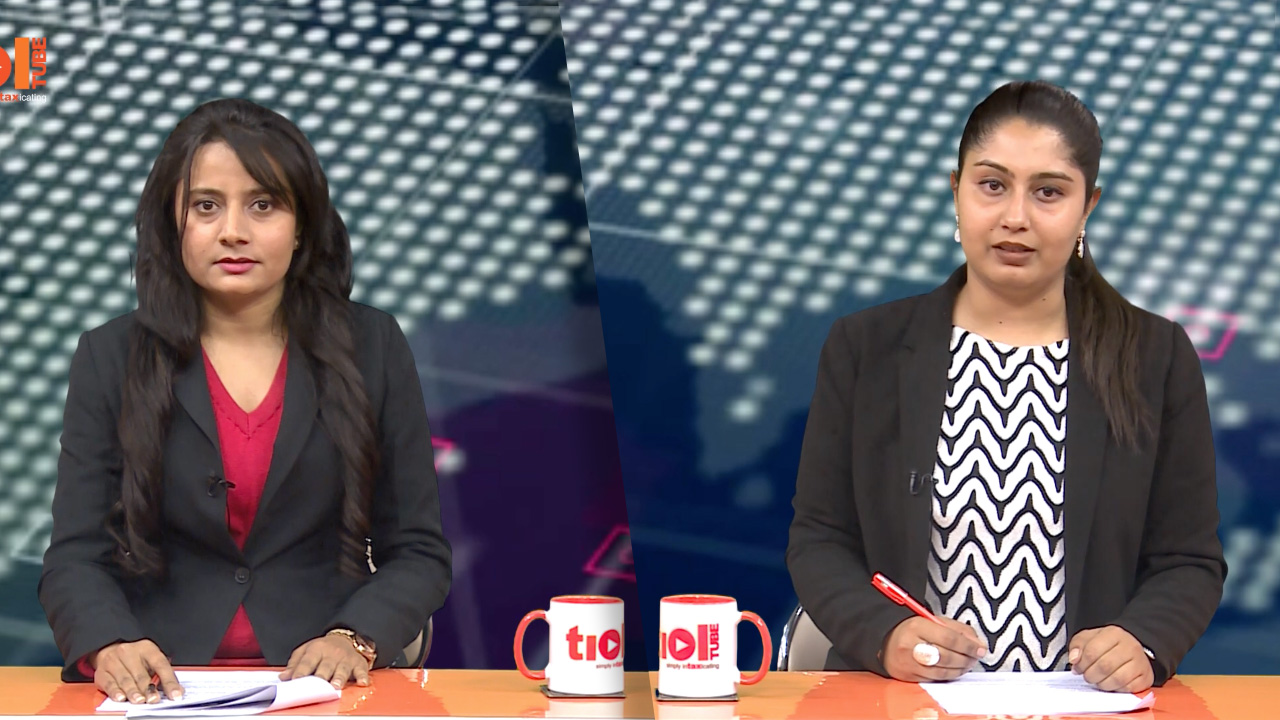|
SERVICE TAX
2019-TIOL-665-HC-P&H-ST
CCE & ST Vs Lone Star Engineers
ST - The assessee, a partnership firm, is engaged in providing taxable service of Site preparation & mining service under the Finance Act - Later, the assessee surrendered such registration and obtained a fresh one as a proprietorship firm - The new proprietor took over the liabilities of the erstwhile partnership - On enquiry, it was found that the assessee provided taxable services of Site Formation Service, Mining Services and Management, Maintenance or Repair Services during the relevant period, upon which it had not paid service tax - SCN was issued after invoking extended period of limitation & proposing duty demand - On adjudication, the demand was confirmed with interest - On appeal, the Tribunal held that the assessee was providing site formation services and mining services and thus was liable to pay service tax on them - It was also noted that payment of service tax by the main contractor shall be treated as payment made by it - It was also held that as per Section 97 of the Finance Act 2012, the assessee was not liable to pay service tax on maintenance and repair of roads - Hence the demand raised on thiese grounds were set aside - Thus the Tribunal remanded the matter to the adjudicating authority to verify whether the tax on the remaining part of the demand had been paid - Hence the Revenue's appeal. Held - Considered the relevant portions of the Tribunal's order - The case of Sunil Hi-Tech Engineers Limited Vs. Commissioner of C. Ex., Nagpur relied upon by the Revenue is of no avail as it involves facts which were different from those of the present case - Hence there is no error or illegality in the Tribunal's order which warrants intervention: HC (Para 3,6,7) - Revenue's appeal dismissed
:
PUNJAB AND HARYANA
HIGH COURT
2019-TIOL-842-CESTAT-MAD + Case Story
Vodafone Cellular Ltd Vs CGST & CE
ST - The appellant company is registered for providing telecommunication services - It entered into International GSM Roaming Agreements with various overseas telecommunication service providers, wherein the appellant provided services to international in-bound roamers, who are subscribers of a foreign telecom operator, but are visiting India - For such service, the appellant charges the foreign telecom operators as per the roaming agreement - The Department opined that such services would attract service tax under telecommunication service - SCNs were issued for four different periods, raising duty demand with interest & imposing penalties - On adjudication, the original authority confirmed the duty demand with interest & imposed equivalent penalty as well as penalty u/s 77(2) of the Finance Act 1994 - The appellant had also filed rebate claimed u/r 5 of the Export of Services Rules 2005 r/w Notfn No 11/2005-ST, in respect of service tax paid on International Inbound Roaming Services exported to the foreign telecom service providers - When such rebate was denied, the appellant filed a Revision application, whereupon an unfavorable order was passed - Hence the present appeals.
Held: It is undisputed that the appellant received consideration from the foreign telecom company for providing international roaming service - Thus, it is not the Department's case that the consideration was received from the person who was visiting India and was receiving services from the appellant as a subscriber of foreign telecom company - The international inbound roamer is not a subscriber of the appellant - Even though the actual beneficiary of the service is the inbound roamer, there is no agreement by the appellant to provide service to the actual inbound roamer - The agreement is in fact between the appellant and the foreign telecommunication company - Hence from the appellant's perspective, the service recipient is the foreign telecommunication company, not the inbound roamer - Besides, upon facing any difficulty, the inbound roamer would avail the customer care service provided by the foreign telecom company - As the service recipient, namely the foreign telecom company, is located outside India, the service in question would amount to export of service under Rule 3(iii) of the Export of Service Rules, for the period prior to 01.07.2012 - For the period after such date, the Place of Provision of Service Rules 2012 is applicable - Rule 3 of these Rules determine the location of the place of provision of the service to be the location of the recipient - As the recipient is located outside India, the service for the period post 01.07.2012 also amounts to export of service - Moreover, after period 01.04.2011, the appellant stopped paying service tax, whereupon SCNs were issued - From the order of the Revisionary Authority, it is clear that when the appellant paid service tax and fuled refund claims for the very same services, the Department had allowed such refund, having held such services to be export of services - Moreover, the refund was granted till the period 31.03.2011 - Hence the Department cannot claim that the services for the relevant periods, are not export of service - Thus, the services are not taxable: CESTAT (Para 1,5.1,5.6,6)
- Assessee's appeals allowed: CHENNAI CESTAT
2019-TIOL-841-CESTAT-BANG
Vodafone Cellular Ltd Vs CCT & CE
ST - The assessee is a provider of telecommunication services, business support services and intellectual property rights services - On verification of service tax returns of assessee for the period 2009-10 onwards, it was noticed that they had availed CENVAT credit of basic excise duty paid on goods like channels and beams and used for erecting towers for communication and transmission and on goods like prefabricated buildings/shelters used for housing, storage of generator sets and other equipments treating the above-mentioned goods as capital goods - The period of dispute is from 2009-2010 to 2011-12 whereas the SCN was issued on 20.10.2014 which is completely barred by limitation - Revenue has invoked extended period of limitation on the ground that the assessee has suppressed the information from Department whereas the fact of the matter is that the assessee have not suppressed any information from the department with the intention to evade payment of duty and they have been filing the returns showing the CENVAT credit on towers and tower materials - It is also a fact that this issue relates to interpretation of complex legal provision and the matter was referred to Larger Bench who decided the same in favour of Revenue - In the case of Continental Foundation JT. Venture - 2007-TIOL-152-SC-CX, the apex court held that when a matter is referred to Larger Bench to resolve a conflict of opinion, in that case, extended period of limitation cannot be invoked - In assessee’s own case for an earlier period, Tribunal has categorically held that extended period could not have been invoked in such cases - It has been consistently held that in such cases extended period of limitation cannot be invoked - Entire demand is barred by limitation and therefore, the entire demand is set aside - On merits, there is a conflict of decision between High Court of Mumbai and the High Court of Delhi but since the appeal of assessee allowed on limitation, no need to go in the merits of the case - Consequently, the entire demand is barred by limitation and therefore, the impugned order is set aside: CESTAT
- Appeal allowed: BANGALORE CESTAT
2019-TIOL-840-CESTAT-DEL
Aviva Life Insurance Company India Ltd Vs CST
ST - Assessee is rendering Insurance Auxiliary Services, Re-insurance Premium, Life Insurance Services, Business Auxiliary Services and Management of Investment under ULIP Services - They have also been availing cenvat credit on input services for providing aforesaid output services - The Department has initiated the case against assessee, the recipient from foreign based service provider, alleging short payment on its part mainly relying upon the fact that figures for the same services during same period as shown by assessee in their balance sheet are different than the one shown in their ST-3 return and denied credit in respect of import of taxable services from outside India - In the light of the fact that Insurance Auxiliary Services & Business Auxiliary Services are taxable under sub-clause (zx) and (zzb) respectively of clause 105 of Section 65 of the Act are received by assessee and that these services fall under category 3rd to Section 66A, the assessee being the service recipient of those services and being based in India and is liable to pay the service tax - Once assessee is discharging the said liability he is entitled for credit disallowing the same is therefore an error on the part of adjudicating authority - Whether the value in balance sheet or the one in service tax return for impugned period is to be taken for assessing liability - It is apparent that service provider being outside India, it is recipient who is liable to discharge the service tax - It is observed that there has been difference in foreign exchange expenses reported in balance sheet and the said expanses reported in service tax returns - The salary paid to the employees is exempted from ambit of tax liability - However, the amount has to be reflected in the balance sheet - Thus, the reason is quite obvious for the difference in balance sheet as well as ST-3 return as far as the amount of salary is concerned - The adjudicating authorities have been silent about the scrutinizing such records and giving such finding as may establish as to whether the amount has been on these expanse is actually taxable or not - Similarly, for the expanses on medical check-up performed outside India for the policy holders located outside India - Since the taxable value shall be the gross amount charged by the service provider for providing such taxable services, it was not available to assessee to make suo moto adjustments about the claims of reinsurer, the scheme of availing credit itself is simultaneously in existence - Such suo moto adjustments shall forfeit the entire objective of credit availment scheme - Resultantly, the value assessed under this head need to be rechecked at the end of the authorities below - Difference in balance sheet and ST-3 return figures, as far as the salary of employees is concerned has to be ignored with respect to the differences for rest of the values - It is for the adjudicating authorities to first verify and then to accordingly adjudicate - Resultantly, appeal allowed by way of remand: CESTAT
- Matter remanded: DELHI CESTAT
CENTRAL EXCISE
2019-TIOL-839-CESTAT-DEL
Bharat Oman Refineries Ltd Vs CGST, CE & C
CX - The assessee is engaged in manufacture of petroleum products and are also availing facility of cenvat credit paid on inputs, capital goods and input services used by them according to the provisions of CCR, 2004 - Whether the input services as that of works contract for repair or maintenance used in factory building and the administrative building alongwith other fabrication work and civil work is an eligible input service - Apparently and admittedly the services provided by contractor to the assessee are Repair and Maintenance Services though in the form of work contract for civil structure but for the purpose of repair and maintenance - The invoices as placed on record clearly mentions the same - Thus, the services rendered is the work contract for maintenance of already existing structure within the assessee's plant wherein is carried on the manufacturing of petroleum products (final products) by assessee - Accordingly, Commissioner (A) has definitely committed an error while just relying upon the fact that the services provided were in the nature of work contract and he has failed to appreciate the work contract is not for construction but only for repair and maintenance - The findings are therefore set aside in view of decision of Apex Court in case of Ramala Sahkari Chini Mills Ltd. - 2010-TIOL-102-SC-CX, M/s Hotel Leela Ventures Ltd. - 2018-TIOL-2498-CESTAT-DEL and M/s Sanofi India Ltd. - 2018-TIOL-3554-CESTAT-AHM - After amendment to the definition of 'input service' a clarification issued by Board vide Circular 943/4/2011-CX where under, while answering to the question raised on the eligibility of credit of service tax paid on construction service as an input service used in modernisation, renovation or repair, it has been clarified that the said services being provided in the inclusive part of definition of 'input service' are definitely eligible to credit - Undisputedly, assessee carried out modernisation, renovation or repair work in their factory premises as is evident from input service invoices enclosed with respective appeal paper book; therefore, the same are eligible to credit - In the result, the impugned order denying the cenvat credit on Repair and Maintenance Service on the ground of these being work contracts which are not input services is set aside: CESTAT
- Appeal allowed: DELHI CESTAT
2019-TIOL-838-CESTAT-ALL
CCE & ST Vs Bhushan Steel And Strips Ltd
CX - The appellant company manufactures Cold Rolled products in various forms like Coils/Sheets/Strips and Plain/Corrugated Galvanized Sheets - The main raw material used are Hot Rolled Coils and Zinc - The assessee sells finished goods directly from factory as well as from depots & branches situated in varios places - One such branch is located at Chandigarh & is registered as a dealer - Acting on the intelligence that the appellant had been evading Excise duty on products manufactured in their factory premises, through clandestine removal and under-valuation of final products manufactured - The appellant's premises at Sahibabad were searched by the DGCEI, whereupon various documents and statutory records were seized - Based on such documents seized and statements taken, it was alleged that the Sahibabad had indulged in evasion of duty by procuring raw material from group companies & had sold finished excisable goods in a clandestine manner, without payment of duty - It was also alleged that while such activity was reflected as trading between group companies, the goods had been sold to independent buyers - Hence duty demands were proposed with interest after invoking extended period of limitation - Penalties were proposed as well - On adjudication, the Commissioner dropped the demands on grounds that there was no positive evidence to substantiate the charges of clandestine removal - Hence the Revenue's appeal.
Held: The Revenue contested that the appellant made transactions with related parties - However, none of the related parties were made party to the proceedings - There is no evidence showing that huge quantity of raw material manufactured at the Sahibabad unit was transported to Chandigarh unit in a clandestine manner - The quantity of goods allegedly removed is about 40000 MT - The transport of the same would require deployment of around 8000 trucks - There is no evidence that any huge number of trucks were engaged by the assessee - Not a single truck was intercepted by the Revenue - Besides, during the relevant period, the entry of goods in the State of Uttar Pradesh was accompanied with Form 31 issued by the Sales Tax Department & the goods were physically examined - Hence the allegations of clandestine manufacture & removal cannot be sustained and were correctly dropped by the adjudicating authority: CESTAT (Para 3,5,9)
- Revenue's appeal dismissed: ALLAHABAD CESTAT
2019-TIOL-837-CESTAT-AHM
Indian Oil Corporation Ltd Vs CCE & ST
CX - The assessee had manufactured and cleared un-branded Motor Spirit (Petrol) and HSD (Diesel) on payment of duty to M/s BPCL and M/s HPCL in terms of Notfn 4/06-CE - The assessee had paid the duty at lower rate as applicable to Motor Spirit/HSD intended for sale without a brand name - However, subsequent to clearance of goods to buyers M/s BPCL and M/s HPCL, in some cases they had converted the same quantity of such duty paid un-branded Petrol/Diesel into branded Petrol fuel by adding some additives under the misconception of law - The assessee voluntarily paid differential duty on such branded fuel, as and when they received necessary details from said buyers M/s BPCL and M/s HPCL - The revenue has demanded the interest under Section 11AB and imposed penalty under Rule 25 of CER, 2002 on the ground that the assessee has delayed payment of duty - The duty so paid by assessee was not lawfully payable on the ground that assessee had admittedly cleared un-branded Petrol and Diesel which attracts lower rate of duty in terms of Notfn 4/06-CE - On this issue, the department has also not raised any SCN, therefore, the department itself has admitted that assessee was eligible for lower rate of duty in terms of aforesaid Notification - Therefore, differential duty was not payable at all by the assessee - The provision of Section 11AB of Central Excise Act shall be applicable only in case where the duty which is lawfully required to be paid by an assessee and the same is not paid - Sub section (2B) is also applicable only in case where duty is payable with authority of law - Moreover, the assessee have not opted for sub section (2B) explicitly for the reason that, firstly, they have only paid the duty but did not pay the interest - Secondly, after payment of duty and interest, the assessee has to opt this provision in written by informing to the department which is not the case here, therefore, sub section (2B) is also not applicable - The duty which was not admittedly payable but paid by the assessee voluntarily, no interest or penalty can be demanded from the assessee - Accordingly, the impugned order is set aside: CESTAT
- Appeal allowed: AHMEDABAD CESTAT
CUSTOMS
2019-TIOL-664-HC-P&H-CUS
Inspector of Customs (Anti Smuggling), UoI Vs Ashok Kumar
Cus - The applicant-Revenue had filed a complaint against the respondent-assessee, u/s 132 & 135 of the Customs Act 1962 - It was alleged that a company owned by the assessee had fraudulently availed benefit under the DEPB Scheme, using forged Bank Realization Certificates - After trial, the assessee was acquitted by the Trial Court - Hence the Revenue filed the present application u/s 378(4) of the CrPC.
Held - The complaint was filed by the Revenue on grounds that the assessee obtained forged BRC & then obtained transferable DEPB scrips and that Customs duty had been evaded - In a letter written by the jurisdictional Assistant Commissioner, it was stated that no revenue loss was caused by the assessee through evasion of Customs duty - In such case, the judgment of the Trial Court, acquitting the assessee u/s 135 is liable to be upheld: HC - Revenue's appeal dismissed
: PUNJAB AND HARYANA HIGH COURT 2019-TIOL-651-HC-MUM-CUS
Axiom Cordages Ltd Vs UoI
Cus - The petitioner company is a 100% EoU, engaged in manufacturing various types of synthetic rope - Upon export of goods, the petitioner filed shipping bill claiming applicable and admissible export benefit under MEIS - It claimed to be eligible for MEIS benefit @ 5% but that the same had been denied - During the relevant period, the petitioner had filed two shipping bills under RITC 5607 9090 - On investigation, the Department claimed that the goods were classifiable under 5607 4900, on which only 2% MEIS benefit was available - Thereafter, proceedings were initiated whereupon a letter was issued by the jurisdictional Dy Commr. of Customs (Preventive), directing to withhold issuing of MEIS scrips - Despite several representations seeking release of MEIS benefit, the same were not acted upon - Hence the petitioner filed a writ petition, which was disposed off with directions to the Development Commissioner to consider the petitioner's representations - Pursuantly, the adjudicating authority passed an order denying MEIS benefit - Hence the present writ was filed - It was also claimed that the adjudication order denied MEIS benefit for a period which was not mentioned in the SCN.
Held: It is seen that the High Court on an earlier occasion had directed the Development Commissioner to consider the petitioner's representations and pass a speaking order - There is force in the petitioner's contentions that it should have been given an opportunity to deal with the O-i-O which was relied upon by the Development Commissioner, to deny such benefit - It is seen that a copy of such O-i-O was received by the petitioner much later - Thus if the Development Commissioner wanted to rely upon such O-i-O, it should have given the petitioner a chance to deal with such O-i-O for considering the same - Now, though the petitioner pointed out several fallacies in the O-i-O, the same cannot be relied upon here as appeal against such O-i-O is pending disposal before the Tribunal - Hence the matter warrants remand to the Development Commissioner for providing fresh opportunity to the petitioner to contest the O-i-O: HC (Para 3-9,21-24)
- Case remanded: BOMBAY HIGH COURT
2019-TIOL-650-HC-MUM-CUS
Balkrishna Industries Ltd Vs UoI
Cus - The petitioner company manufactures & exports Pneumatic Tyres under Chapter 40 of the First Schedule to the CETA, 1985 - During the relevant year, the petitioner claimed to have achieved incremental export growth of FOB value of 28.13% compared to the previous FYs - Hence the petitioner claimed to be entitled to duty credit scrip (authorization) to the extent of 2% of incremental growth of export, in terms of IEIS Annual Scheme - In view of such growth & upon realization of sale proceeds in convertible foreign exchange, the petitioner claimed duty scrip of about Rs 7 crores in prescribed Form ANF-3F - However, the EDI system at that time did not accept applications seeking issuing of scrip valued above Rs 1 crore - The petitioner filed several representations in this regard - Thereafter, the Additional Director General of Foreign Trade, issued two scrips for an aggregate amount of Rs 1 crore, having restricted the petitioner's claims without assigning any reason whatsoever - The petitioner then approached several officers of the DGFT seeking issuing of scrips for the balance amount, but to no avail - Hence the present writ was filed.
Held: The court in another Writ Petition No. 2548 of 2016 considered the Notification No.43 (RE-2013)/2009-14 & observed that the same is covered by the judgment of a Division Bench of this court in JSW Steel Ltd. Vs. Union of India - The judgment in this case also enures to the benefit of the petitioner herein, as the very same notification No 43 was subject matter in that writ petition - Hence the respondents are given eight weeks' time to comply with directions as laid down in the precedent case: HC (Para 3,5,8,9,11,13)
- Assessee's writ petition allowed: BOMBAY HIGH COURT |
|












